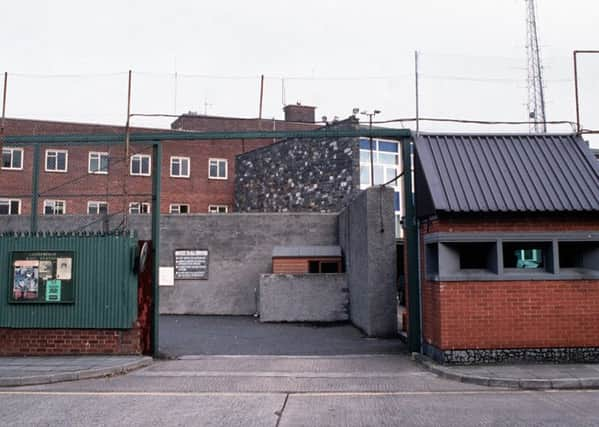Castlereagh break-in brought Special Branch '˜close to meltdown'


In a series of exclusive articles in the News Letter, the retired agent handler explains how millions of pounds were spent rehousing detectives who had their personal information stolen, but that the catastrophic security lapse almost cost far more in terms of agents fearing for their lives.
Wishing to be identified only as ‘Richard,’ he is one of a number of officers whose personal security was compromised as a result of the Castlereagh security breach.
Advertisement
Hide AdAdvertisement
Hide AdHe has spoken publicly in an effort to increase awareness of legitimate, but often unorthodox, policing methods, and to strip away some of the mystique around agent handling he claims has been exploited to wage a propaganda war against law enforcement agencies.
“It was as close to meltdown as I ever saw the place,” Richard said.
“The level of disorientation and concern – particularly among sources working in republican communities – was tangible. Fortunately, very courageously, people did sit tight, largely thanks to some excellent work by handlers who had long-term relationships with these people. The media didn’t help, because the story was sexy and the headlines were ‘sources compromised’ and ‘secret documents stolen.’
“So to the average punter this was about people going in and rifling through sophisticated computer systems but nothing could be further from the truth. “Nevertheless, even back in 2002, you could make a lot of progress [in targeting police officers] with a name, a mobile and a home phone number.
Advertisement
Hide AdAdvertisement
Hide Ad“As a consequence of the break-in there was far more of a threat to police officers than to agents. The downside for me and a few other individuals is that it wasn’t just a case that they got my surname and telephone number, they got more.
“That presented me with a decision to make ... do I run or do I sit tight and turn my house into a fortress? We [SB] paid the price for leaving ourselves vulnerable.
“It was the embarrassment factor that really undermined us in a very distinct way and it took a long time to recover from that.
“It’s interesting that we did recover from it because you would have thought it would have been a fatal blow, but within a relatively short period of time ... it was possible to get back into the business of trying to recruit people.”
Advertisement
Hide AdAdvertisement
Hide AdIn July 2009, then chief constable Sir Hugh Orde expressed his frustration at the collapse of the case against an American chef wanted over a break-in.
The PPS said that the extradition of Larry Zaitschek from New York – who had been employed at Castlereagh – was not going ahead because not all intelligence material could be disclosed to the defence and there was a risk he would not get a fair trial as a consequence.
Mr Zaitschek has repeatedly denied being involved in the break-in.